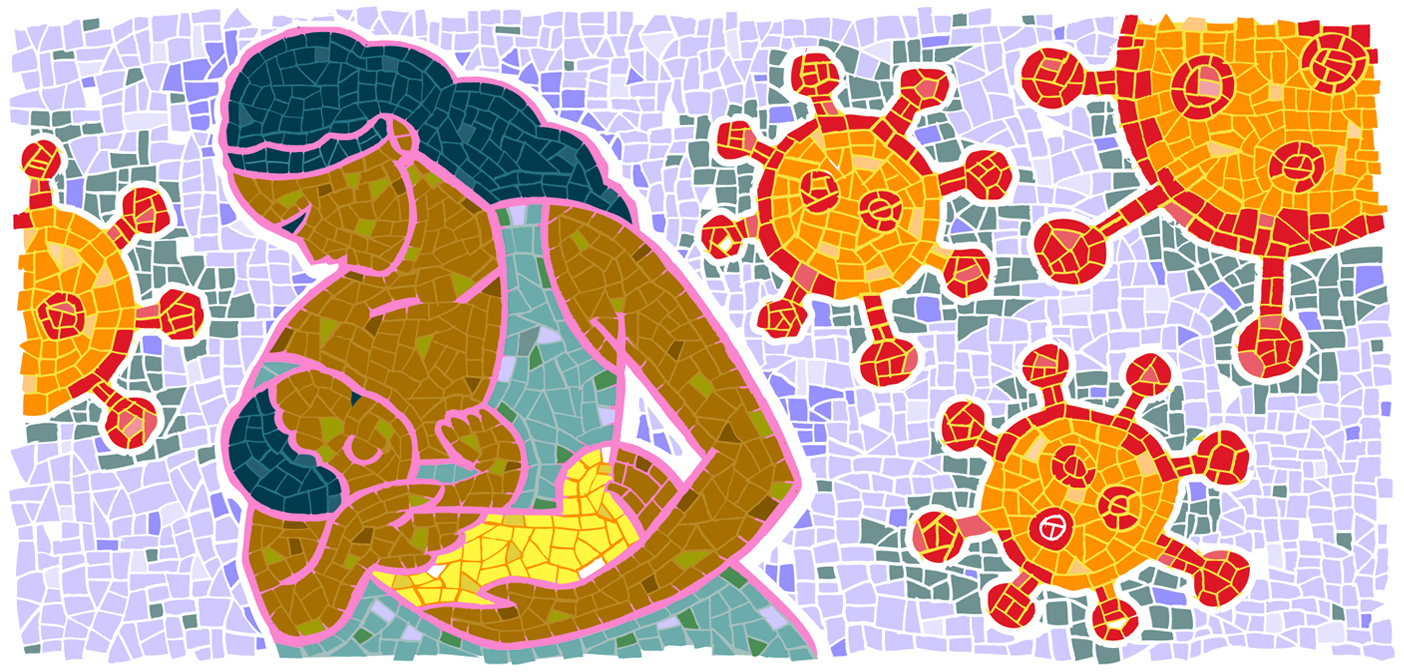WRITTEN BY STEVE ST. ANGELO | ILLUSTRATIONS BY ANDY SNAIR
Mother-infant contact and supporting breastfeeding during the COVID-19 pandemic should be prioritized, write lead author Cecília Tomori and colleagues in Maternal and Child Nutrition, citing data and guidance from the World Health Organization (WHO).
The WHO recommends skin-to-skin contact and breastfeeding with appropriate respiratory precautions, such as using a mask and handwashing. The harms of separation for babies, mothers, and strained health systems are too great, they write in “When Separation Is Not the Answer: Breastfeeding Mothers and Infants Affected by COVID-19.”
Yet several nations have adopted infection prevention and control policies that separate mothers and infants and disrupt, discourage, or prohibit breastfeeding for such mothers. Such policies are worrisome, especially among communities already facing health and societal inequities. “Global COVID‐19 data are suggestive of potentially lower susceptibility and a typically milder course of disease among children, although the potential for severe disease in infancy remains.”
Separation, they write, causes cumulative harms, including disrupting breastfeeding and limiting the protection breastfeeding offers against infectious disease.
“Moreover, separation does not ensure lower viral exposure during hospitalizations and post‐discharge, and contributes to the burden on overwhelmed health systems. Finally, separation magnifies maternal health consequences of insufficient breastfeeding and compounds trauma in communities who have experienced long‐standing inequities and violence, including family separation.” Health services should follow WHO guidance and take an integrative approach that incorporates considerations of the detrimental impacts of mother-infant separation in their COVID-19 policies, they write.
